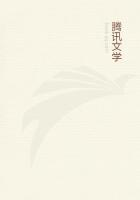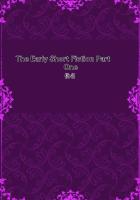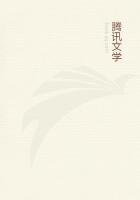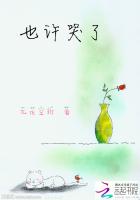When our little Jenny one day put on a clean white muslin gown embellished with red sprigs, Hum flew towards her, and with his bill made instant examination of these new appearances; and one day, being very affectionately disposed, perched himself on her shoulder, and sat some time. On another occasion, while Mr. A was reading, Hum established himself on the top of his head just over the middle of his forehead, in the precise place where our young belles have lately worn stuffed humming-birds, ****** him look as if dressed out for a party. Hum's most favourite perch was the back of the great rocking-chair, which, being covered by a tidy, gave some hold into which he could catch his little claws. There he would sit, balancing himself cleverly if its occupant chose to swing to and fro, and seeming to be listening to the conversation or reading.
Hum had his different moods, like human beings. On cold, cloudy, gray days he appeared to be somewhat depressed in spirits, hummed less about the room, and sat humped up with his feathers ruffled, looking as much like a bird in a great-coat as possible. But on hot, sunny days, every feather sleeked itself down, and his little body looked natty and trim, his head alert, his eyes bright, and it was impossible to come near him, for his agility. Then let mosquitoes and little flies look about them! Hum snapped them up without mercy, and seemed to be all over the ceiling in a moment, and resisted all our efforts at any personal familiarity with a saucy alacrity.
Hum had his established institutions in our room, the chief of which was a tumbler with a little sugar and water mixed in it, and a spoon laid across, out of which he helped himself whenever he felt in the mood--sitting on the edge of the tumbler, and dipping his long bill, and lapping with his little forked tongue like a kitten. When he found his spoon accidentally dry, he would stoop over and dip his bill in the water in the tumbler; which caused the prophecy on the part of some of his guardians that he would fall in some--day and be drowned. For which reason it was agreed to keep only an inch in depth of the fluid at the bottom of the tumbler. A wise precaution this proved; for the next morning I was awaked, not by the usual hum over my head, but by a sharp little flutter, and found Mr. Hum beating his wings in the tumbler--having actually tumbled in during his energetic efforts to get his morning coffee before I was awake.
Hum seemed perfectly happy and satisfied in his quarters; but one day, when the door was left open, he made a dart out, and so into the open sunshine. Then, to be sure, we thought we had lost him. We took the mosquito netting, out of all the windows, and, setting his tumbler of sugar and water in a conspicuous place, went about our usual occupations. We saw him joyous and brisk among the honeysuckles outside the window, and it was gravely predicted that he would return no more. But at dinner-time in came Hum, familiar as possible, and sat down to his spoon as if nothing had happened.
Instantly we closed our windows and had him secure once more.
At another time I was going to ride to the Atlantic House, about a mile from my boarding-place. I left all secure, as I supposed, at home. While gathering moss on the walls there, I was surprised by a little green humming-bird flying familiarly right towards my face and humming above my head. I called out, "Here is Hum's very brother."
But, on returning home, I saw that the door of the room was open, and Hum was gone. Now certainly we gave him up for lost. I sat down to painting, and in a few minutes in flew Hum, and settled on the edge of my tumbler in a social, confidential way, which seemed to say, "Oh, you've got back then." After taking his usual drink of sugar and water, he began to fly about the ceiling as usual, and we gladly shut him in.
When our five weeks at the seaside were up, and it was time to go home, we had great questionings what was to be done with Hum. To get him home with us was our desire; but who ever heard of a humming-bird travelling by railroad? Great were the consultings. A little basket of Indian work was filled up with cambric handkerchiefs, and a bottle of sugar and water provided, and we started with him for a day's journey. When we arrived at night the first care was to see what had become of Hum, who had not been looked at since we fed him with sugar and water in Boston. We found him alive and well, but so dead asleep that we could not wake him to roost; so we put him to bed on a toilet cushion, and arranged his tumbler for morning. The next day found him alive and humming, exploring the room and pictures, perching now here and now there; but as the weather was chilly, he sat for the most part of the time in a humped-up state on the tip of a pair of stag's horns. We moved him to a more sunny apartment; but, alas! the equinoctial storm came on, and there was no sun to be had for days.
Hum was blue; the pleasant seaside days were over; his room was lonely, the pleasant three that had enlivened the apartment at Rye no longer came in and out; evidently he was lonesome, and gave way to depression. One chilly morning he managed again to fall into his tumbler, and wet himself through; and notwithstanding warm bathings and tender nursings, the poor little fellow seemed to get diphtheria, or something quite as bad for humming-birds.
We carried him to a neighbouring sunny parlour, where ivy embowers all the walls and the sun lies all day. There he revived a little, danced up and down, perched on a green spray that was wreathed across the breast of a Psyche, and looked then like a little flitting soul returning to its rest. Towards evening he drooped; and, having been nursed and warmed and cared for, he was put to sleep on a green twig laid on the piano. In that sleep the little head drooped--nodded--fell; and little Hum went where other bright dreams go--to the Land of the Hereafter.

